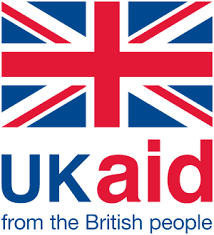Community / Land projects / Kyatune and Mumoni Integrated Drought Recovery Project
Kyatune and Mumoni Integrated Drought Recovery Project

€0
01/12 - 12/13
Completed
This project is part of
Implementing Organisations
Donors
Data Providers
General
After having been severely affected by the drought in Kenya, vulnerable communities in the county of Kitui are now in need of support to enable them to recover and build their resilience to future irregular weather patterns and other shocks. Communities still remain in significant need: in April 2011 an ACF SMART survey of Mwingi and Kitui districts in Kitui Country showed that Global Acute Malnutrition (GAM) in Mwingi was 6.5% while Severe Acute Malnutrition (SAM) was 0.9% and there was one case of 0.1% oedema. GAM in Kitui was at 10.2% and SAM was at 1.5%. The District Nutrition Official reported on November 25th that increasing intakes to specialist feeding programmes indicate that nutrition levels continue to decline, and are expected to continue to do so until the first crops of protein rich pulses are ready in December. The Diocese of Kitui, CAFOD’s partner in the region, will focus its response in Kyatune in Kitui and Muumoni in Mwingi. The communities of Kitui have traditionally raised livestock, though there has been a trend towards agriculturalism, spreading outwards from the urban centre, as conditions for pastoralists have become harsher. Assisting communities to find sustainable livelihoods in the context of irregular weather patterns, changing practices in land ownership and increasingly urbanized economies is essential to building community resilience to shock. Kyatune is a semi-arid marginal agricultural area in the northern highlands with only sand beds and no permanent river, which has struggled with repeated failed rains. Located close to Kitui Central, it has high poverty levels, high levels of malnutrition and stunting and a high prevalence of HIV. Communities rely less on large livestock as landholdings are smaller but the short rains have been erratic and insufficient to establish crops. Rains have only just started and are late and light, and local knowledge suggests they will finish early. In the last six months, CAFOD’s partners have been providing emergency relief to communities through cash transfers to support household food security, as successive crop failures and price rises have burdened communities with a myriad of problems related to malnutrition. Hospitalisation of children suffering from malnutrition and disease as result of suppressed immunity has the effect of withdrawing caretakers from valuable economic activities. There has been increasing need for special diets which many households cannot afford because of low income. Muumoni is semi-arid and sparsely populated by communities of marginal mixed farmers who rely more on livestock rearing. Roads are poor and the Diocese of Kitui is the only agency offering long-term assistance in this remote and hard to access area. The Government of Kenya has provided support in the form of livestock off-take, targeted at 50% of stocks, to relieve stress on pasture, while income has been significantly reduced as families have sold animals at low prices. Here also the seed system collapsed, and CAFOD’s partner has responded by providing cash transfers to increase food purchasing power, along with seed distributions to ensure the planting season was not missed. Rains began in mid-October and thus far crops appear to be thriving. Supporting rapid recovery and accelerating production is even more vital in these two areas given the elections planned for December 2012. This coincides with peak harvest time when the long rains fall in Kyatune and Muumoni and electioneering is liable to disrupt normal farming patterns.



